When comparing your pool decking options, it is important to consider the materials you want in your design. To help you decide, let’s look at some of the most common pool decking options.
But first, let’s address the obvious: What is a pool deck?
What is a Pool Deck?
Very simply, the pool deck is the deck around the pool. Though wood might be the first material to come to mind for any deck, there are a variety of materials used to create pool decks that meet needs ranging from safety to aesthetics.
The deck around the pool is a multifunctional space that serves to entertain and inspire calmness, but also contributes to pool safety and cleanliness. It should be a slip-resistant area with enough space between grass and gardens to reduce the amount of dirt and leaves that may find their way into a pool.
When planning your pool, check with your builder as well as local zoning requirements that may dictate any requirements your pool and its surrounding deck may need to meet in order to be compliant. Understanding how large of a deck you’ll need, as well as any constraints around space from the edge of your pool to your home, can help you plan ahead and choose the right materials.
Pool Decking Material Options
There’s no shortage of material options for swimming pool decks.
- Pavers: Pavers can refer to a variety of materials, like concrete, stone, or a combination thereof. These small pieces of material are not uniform in size, but work together to create a striking area around your pool or patio.
Did you know: Interlocking pavers—which can resemble cobblestone or granite—can be installed to be frost-proof? - Concrete: This is a smooth, popular choice that—believe it or not—comes in a variety of colors beyond basic gray. Stamped concrete is also an option for those who want the bespoke look of pavers, but want a less expensive option.
Did you know: Concrete collects less heat than some other materials and will prevent a gnarly foot burn at your next family barbecue. - Wood: A classic choice for an in-ground pool with a deck around it, this can be especially stylish depending on the wood type.
Did you know: Even the best wood materials will require seasonal maintenance—sanding, sealing, staining, and a good scrub-down with the power washer at least once or twice per year. - Stone: Like wood, there are lots of stone options depending on your taste, whether it’s sandstone or granite.
Did you know: The cost of your stone will depend on its availability in your region? - Composite: Also known as synthetic decking, this is a durable alternative to natural wood designed to endure harsh weather conditions. Composite does have a tendency to draw and retain heat, so keep this in mind if you or your guests plan to walk barefoot on your deck.
Did you know: Many composite materials are designed to resist damage from insects—though, unfortunately, will still not repel them without a healthy dose of bug spray. - Tile: Glazing is the main feature of this material, which not only sparkles in the sunlight but prevents frosting.
Did you know: Porcelain is a popular choice for its low maintenance style—just beware the slipping hazards that come with it. - Artificial Turf: Fake grass is a popular choice for those who live in drought-prone regions, such as parts of the Midwest or more areas in the Southwest, who want the look and feel of a fresh-cut lawn. It can also serve as a nice contrast to dirt or stone backyards and lend a touch of lush greenery to the space.
Did you know: Artificial turf, though not requiring mowing and other grass-related upkeep, does still require cleaning using all-purpose solutions or other household cleaning products to remove dirt or, yes, dog doo.
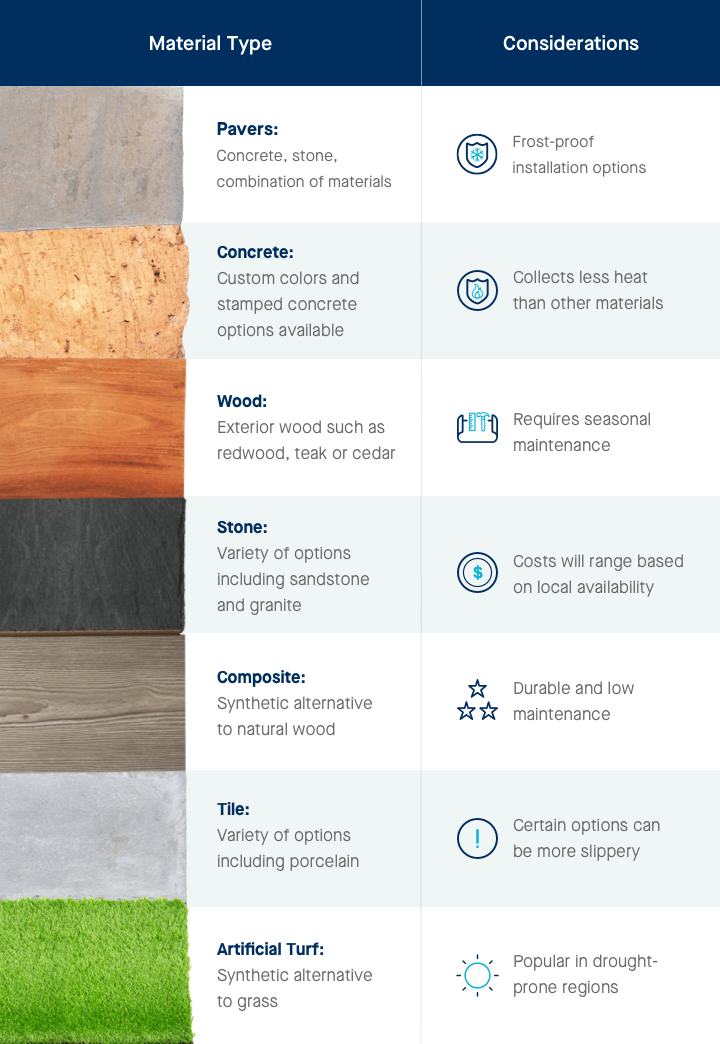
Pool Decking Considerations by Yard Type
Before you break ground on your pool or deck, you’ll want to take the ground itself into consideration – namely, the type of soil or unique characteristics of your backyard.
What Lies Beneath
All backyards are alike, right? Wrong! While most backyards look green, all that grass (or sod) might not offer accurate clues as to the type of soil, sand, clay, or rocks below. Understanding the unique constraints of the type of land your pool will sit on will help determine the degree of support your pool and decking will need and ensure its stability.
- Soil: Not all types of soil are the same!
- Soil such as peat may not offer the most supportive foundation for your pool and deck, due to its ability to hold moisture. This can negatively impact the longevity of your pool and cause it to crack or over-settle. Your pool builder should be able to offer solutions to make your yard more pool-friendly if peat is a factor.
- As a soil type, loam can be more supportive as it may include sand or clay in its composition which can provide better drainage and less shifting. However, you’ll still need an expert to evaluate just how much clay or silt is in your loamy soil. If it’s not properly balanced, it may require some extra TLC in order to support your pool and decking.
- Silt feels smooth and retains water, making it a less-than-optimal starting point for a pool and decking installation. Its moisture-retaining properties cause silt to expand, which can press against a foundation and cause cracks in your pool and/or decking material.
- Clay: If your backyard is clay, you won’t be in for an easy time when planning to add a pool or deck. Clay offers poor drainage and load-bearing capabilities. But don’t give up hope! Your builder will be able to help you figure out whether the clay on your property can safely support a pool and deck.
- Sand: If you live in a coastal area near a beach, your backyard may be on the sandy side. This is great news if you’re planning on installing a pool. However, while sand generally offers good drainage, loosely compacted sand may prove problematic in terms of load bearing capabilities.
- Gravel: Gravel’s rocky, pebble-like texture provides the best drainage and makes it ideal for installing a pool or decking due to its ability to handle heavy loads However, your builder will be able to advise on any deck footings needed, as well as unique factors to weigh prior to your pool installation.
- Rock: While gravel can be a super supportive material for adding a pool, uneven and rocky terrain may require some degree of leveling and excavation by your team of builders to be sure your pool and decking sit on even ground. (We’ll talk about uneven or sloped yards in greater detail below!)
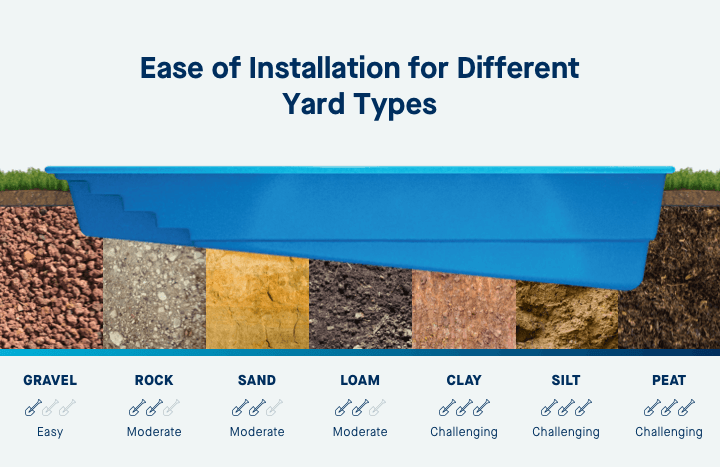
Understanding the type of ground your pool and decking will sit on is critical to making sure the structure is stable, so leave it to chance! Consult with a professional pool builder first to head off any potential problems before your project begins. Your pool builder should have a working knowledge of the types of soil and terrain in your area and its mineral composition (including salts or decaying organic materials) that may impact your installation.
Pools and Decking on a Sloped Yard
If your backyard sits on a hill or slope, it’s not impossible to install a pool in a backyard with these types of geographic features, but you’ll need to enlist the aid of a professional pool builder who is well-versed in a process known as “grading.” Grading involves filling in any slopes or uneven portions of your yard to create a level surface that can fully support your pool and any accompanying decking.
Your pool builder can advise you as to how much grading may need to be done to be sure your pool installation is a success, or give you some options for the type of pool and decking that will work with the geographic features of your yard. They can recommend leveling, installing a retaining wall, or clever customizations that can work with any natural sloping of your property. Doing a little homework and asking the experts before you start digging up your backyard can ensure that you’ll be able to enjoy the pool of your dreams for decades to come!
Now that we’ve gotten that food for logistical thought out of the way, it’s time to dip a toe into more inspirational waters. Here are 10 inground pools with decks that we think are beautifully unique. and may provide you with just the ideas you are looking for.
Why Decking Around a Pool is a Good Idea
Adding decking around your pool not only helps provide you with not only a decorative element, but it also helps keep your pool cleaner. If you install your pool directly into your lawn without any buffer of space, you’ll constantly be saddled with clearing dirt, grass and debris out of your pool. This can take more time to maintain the health and quality of your pool. Additionally, a deck can give you a place to entertain guests, giving them time to dry out and soak up some sun.
What is the Best Decking Around Pools?
The best decking choice is the one that best suits your space’s needs: size, location of the pool, surrounding greenery, zoning restrictions and more. For a lower-maintenance option, composite decking might be a good choice, as it doesn’t require as much upkeep as natural wood. However, if safety is a concern, pavers and concrete are often durable and slip-resistant options. It’s ultimately a conversation to be had with a builder to find the right material, with the right durability, at the right cost.
When to Consider Building a Pool Deck?
Before you start to narrow down your choices of pool decking and how it will work in harmony with your brand new pool, you’ll first want to consult with your builder to make some serious considerations. If you already have a deck, installing a new pool can be a great opportunity to give it a facelift to bring your backyard vision to life. Your builder will work with you to help determine the best time of the year for construction, the order of the construction, and what existing structures or landscapes might need to be redone or rearranged to accommodate your pool deck.
Deck ideas around an in-ground pool can certainly be a thrill to come up with, but make sure all planning-process boxes on the checklist are marked before delving into mood boards.
Swimming Pool Deck Considerations
When planning a pool deck, ask a few fundamental questions before wading into details: How much privacy do I want with my deck? What materials are easily accessible in my area? How much is slipping a concern? Do I often walk in my bare feet? There’s also a standard three feet of deck that should surround any pool, regardless.
Below, some other key considerations:
- Zoning Requirements: Certainly, you’ll want to research local regulations and/or HOA rules and determine whether a pool is considered a permanent structure in your jurisdiction. You’ll also want to think about railings, gates, pool covers and safety locks to ensure your pool is compliant and safe.
- Pool Cover: A pool cover can not only help keep debris out of the pool when not in-use, but also works as a safety barrier to prevent people from accidentally falling in. You’ll want to consider not just whether you want an automatic, electric cover, but how easy to maintain the cover is and how the design interacts with the pool. Your pool builder will be able to answer your questions and help you narrow your choices.
- Liner: With more than 1,200 designs to choose from, there are virtually endless ways to customize the look and feel of your vinyl liner pool. A pool professional can help you choose a quality liner, advise on proper cleaning and create a cohesive vision that works with decking and other elements surrounding your new pool.
Plan Your Dream Backyard with Latham Pool
Every great pool deserves the perfect deck. Contact a builder to lay the foundation for your future swimming pool deck.

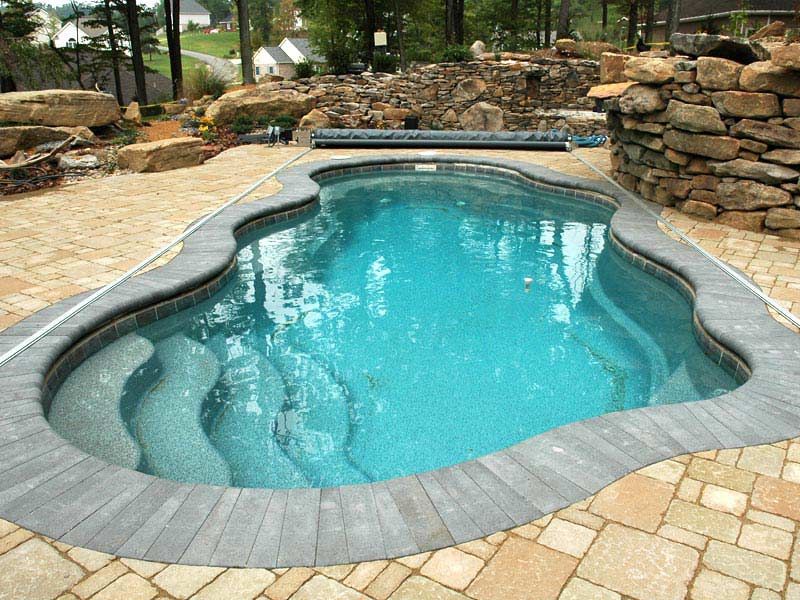

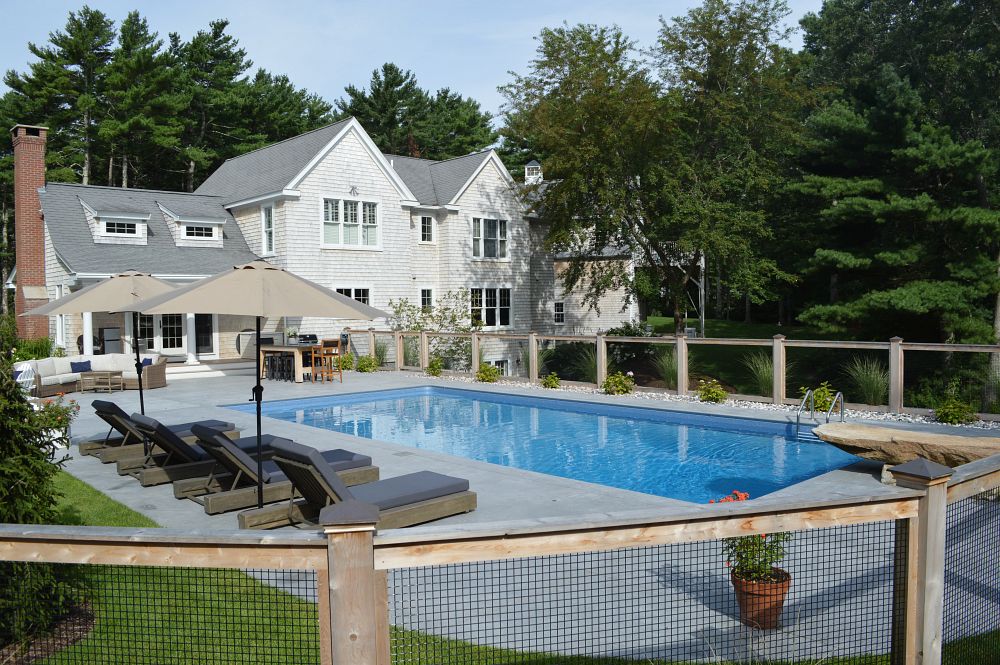
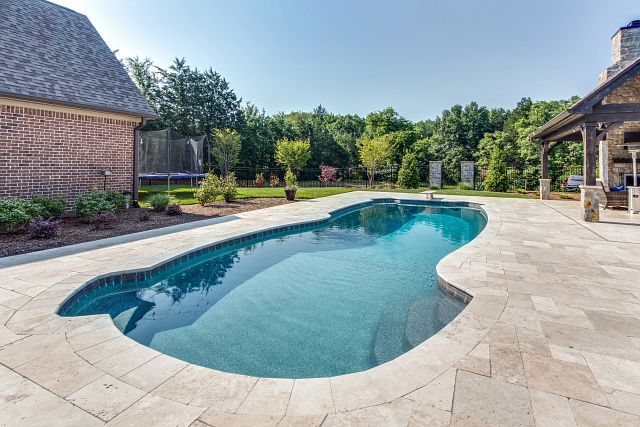
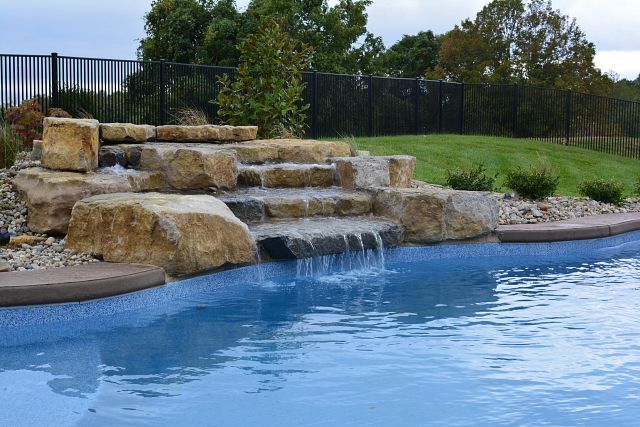
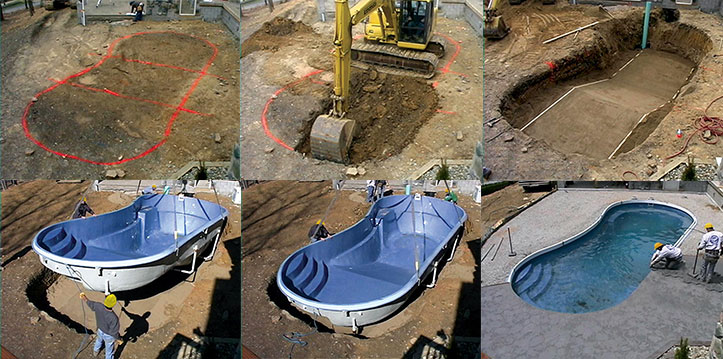
Join the discussion